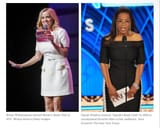Search Results
7/3/2025, 8:31:21 PM
>Many of these titles were so-called sentimental novels, whose virtuous heroines illustrated proper moral conduct. In 1855, Nathaniel Hawthorne described American novelists to his publisher as “a damned mob of scribbling women, and I should have no chance of success while the public taste is occupied with their trash.”
>A century later, the story had changed, and publishing had become a boys club with cultural cachet, according to Mr. Sinykin. Literary form was prized above social instruction.
>Starting in the 1980s, a new generation of women came to dominate the publishing industry. The “feminization” of the industry, as Mr. Sinykin called it, resulted in a business that “assumes its primary audience is white women between 30 and 65” and publishes books to suit their tastes.
>In one sense, then, for men to read more fiction as the world of the novel exists today would not just require more stereotypically masculine subject matter. It might be a matter of men approaching their reading lives a little more like women do — getting recommendations online from celebrities and influencers, browsing together, forming book clubs.
>One thing that may help: brick-and-mortar bookstores giving traditionally male-focused genres the romantasy treatment, said Shannon DeVito, the senior director of books at Barnes & Noble. According to Ms. DeVito, over the past six months, the chain has had growing sales from contemporary science fiction and fantasy authors like Matt Dinniman and James Islington.
>“It’s not a concerted effort to get men to read more,” said Ms. DeVito. “It’s just great books that appeal to that audience.”
>Book culture is not a monolith. According to BookScan, some 782.7 million books were sold in 2024, and the rapid growth of the self-published book market means that there is fiction to suit almost every taste. In this context, what Mr. Sinykin called the “worst version” of the critique of contemporary fiction — that liberal politics have destroyed the space for male readers — seems like a huge oversimplification. And many people who care about the future of the male fiction reader are keen to avoid it.
>Mr. Israel deliberately did not include the words “man” or “men” in the name of his book club. He called it “The Fiction Revival,” to underline the idea that there was a kind of reading experience for men that needed to be resuscitated.
>A century later, the story had changed, and publishing had become a boys club with cultural cachet, according to Mr. Sinykin. Literary form was prized above social instruction.
>Starting in the 1980s, a new generation of women came to dominate the publishing industry. The “feminization” of the industry, as Mr. Sinykin called it, resulted in a business that “assumes its primary audience is white women between 30 and 65” and publishes books to suit their tastes.
>In one sense, then, for men to read more fiction as the world of the novel exists today would not just require more stereotypically masculine subject matter. It might be a matter of men approaching their reading lives a little more like women do — getting recommendations online from celebrities and influencers, browsing together, forming book clubs.
>One thing that may help: brick-and-mortar bookstores giving traditionally male-focused genres the romantasy treatment, said Shannon DeVito, the senior director of books at Barnes & Noble. According to Ms. DeVito, over the past six months, the chain has had growing sales from contemporary science fiction and fantasy authors like Matt Dinniman and James Islington.
>“It’s not a concerted effort to get men to read more,” said Ms. DeVito. “It’s just great books that appeal to that audience.”
>Book culture is not a monolith. According to BookScan, some 782.7 million books were sold in 2024, and the rapid growth of the self-published book market means that there is fiction to suit almost every taste. In this context, what Mr. Sinykin called the “worst version” of the critique of contemporary fiction — that liberal politics have destroyed the space for male readers — seems like a huge oversimplification. And many people who care about the future of the male fiction reader are keen to avoid it.
>Mr. Israel deliberately did not include the words “man” or “men” in the name of his book club. He called it “The Fiction Revival,” to underline the idea that there was a kind of reading experience for men that needed to be resuscitated.
Page 1
